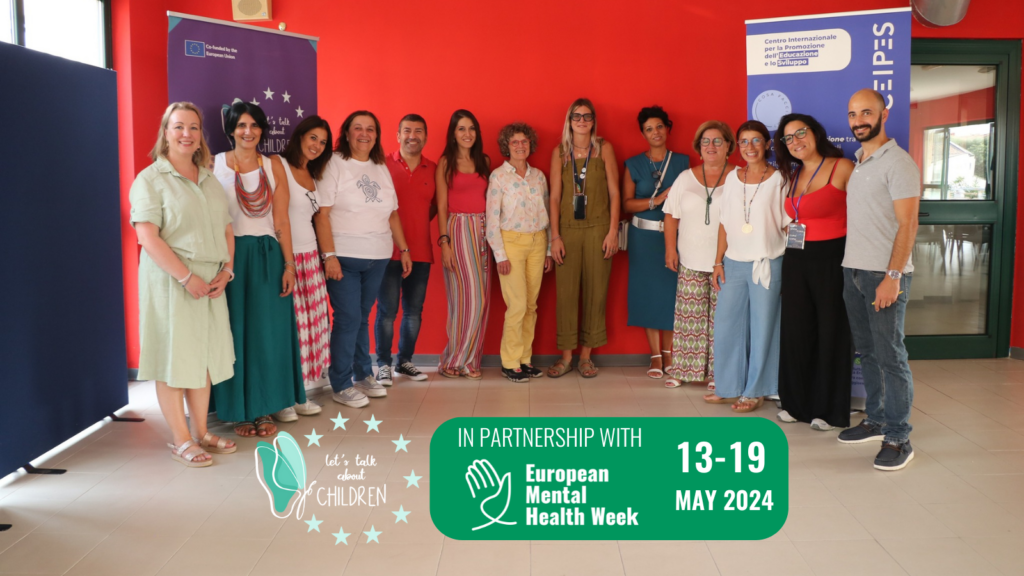Co-creating the future of Let’s Talk: CEIPES, Sicily (Italy)
Let’s Talk About Children joins European Mental Health Week 2024 with a series of blog posts focusing on co-creational aspects behind the LTC practice. Project partners answered the same questions to reflect upon similarities and differences in national approaches, to learn from each other and highlight the importance of co-creation in mental health practices.

What are the main goals that the Let’s Talk About Children project is trying to achieve regarding children’s mental health in Sicily?
At the core of the Let’s Talk About Children project is the promotion of children’s mental health and the prevention of problems in adverse circumstances. This includes not only direct interventions with children but also efforts to raise awareness among stakeholders on how mental health promotion can be integrated into adult healthcare and social services, as well as in parenting education and child development support.
In Sicily, the involvement of experts from various sectors related to mental health ensures an integrated and multi-sectoral approach. The aim is to maximize local impact by engaging psychologists, psychiatrists, pedagogists, psychiatric rehabilitation technicians, educators, and primary and secondary school teachers. This diversity of expertise and perspectives will ensure a comprehensive and targeted response to the needs of children and families in the region.
Our aim is to transfer the LTC approach to stakeholders and participants efficiently, ensuring the effective dissemination and replicability of practices and knowledge nationwide. We are also focused on embedding the LTC approach into local health and social systems. This entails close collaboration with local institutions to ensure that the necessary resources and services are available to support the effective implementation of the LTC approach at the community level. However, our ultimate goal is to establish a national plan for the further rollout of LTC implementation in participating countries. This plan will provide a clear framework and direction to ensure that the LTC approach continues to grow and be supported nationally in the long term.
Can you provide a specific example of how the Let’s Talk About Children project in Sicily engaged diverse stakeholders in collaborative processes?
The Let’s Talk About Children project in Sicily fosters collaboration among families, educators, mental health professionals, and institutions. Through various initiatives, such as training programs and conferences, the project has effectively involved these stakeholders in collaborative processes.
One notable example is the training of 12 practitioners, including teachers and mental health professionals, in the Let’s Talk about Children (LTC) method. This initiative not only equipped professionals with the necessary knowledge and tools but also served as a platform for collaboration and exchange of ideas. The implementation of LTC methodology in primary and secondary school settings provides a tool for home-school collaboration: parents and teachers are better equipped to understand the psychosocial needs of children in both environments. This collaborative approach fosters a holistic understanding of children’s mental health and enables tailored interventions.
The Let’s Talk About Children project in Sicily further embodies the principles of co-creation by fostering collaboration among stakeholders on an equal basis. Through training, dissemination efforts, and collaborative events, the project has effectively engaged diverse actors in shaping the future of mental health support for children and families in the region.
What have you learnt from the different people and stakeholders you interacted with in this first part of the Let’s Talk About Children project?
Interacting with families, educators, mental health professionals, and institutions has provided us with a multifaceted understanding of the complexities surrounding children’s mental health.
From families, we have learned firsthand about the challenges they face in navigating mental health issues within the familial context. Their experiences have underscored the critical importance of early intervention and support in promoting children’s well-being. Educators have offered unique perspectives on the intersection of mental health and education, highlighting the need for comprehensive strategies to address the psychosocial needs of students in school settings. Their input has emphasized the crucial role of collaboration between home and school environments in fostering positive mental health outcomes for children.
Mental health professionals have shared invaluable expertise on evidence-based interventions and best practices for promoting children’s mental health. Their insights have underscored the importance of a holistic approach that addresses the diverse needs of children and families. Institutional stakeholders have provided valuable perspectives on the systemic factors that influence children’s mental health outcomes. Their input has highlighted the need for policy and structural changes to better support children and families facing mental health challenges.
Our interactions with these diverse stakeholders have reinforced the importance of collaboration and partnership in addressing children’s mental health. By working together, we can leverage our collective expertise and resources to create a more supportive and inclusive environment for children and families.
How can the LTC method promote an approach to mental health where everyone’s voice is given equal attention, respect, and value?
Inclusivity is at the core of the LTC method, ensuring that all groups with a stake in mental health are represented and that diversity is celebrated. By actively engaging families, educators, mental health professionals, and institutions, the LTC method ensures that a wide range of perspectives are considered and valued. Equality is upheld through the acknowledgment of everyone’s perspective as essential and valued. Each participant brings their own experience, expertise, skills, and insight to the table, contributing to a rich tapestry of ideas and solutions. Respect is paramount in the LTC method, with due regard paid to working together and communicating in a respectful and constructive manner. This fosters an environment of trust and collaboration, where individuals feel safe to express themselves openly.
Reciprocity is fostered through genuine sharing of thoughts, feelings, and experiences among participants. Mutual learning occurs as shared meanings develop, enriching the collective understanding of mental health and well-being. Power sharing is embraced, recognizing different areas of expertise and ensuring democratic shared ownership of decisions. By empowering individuals to take an active role in mental health promotion, the LTC method promotes a sense of agency and accountability. Accessibility is ensured, with everyone involved having equal opportunities to participate and contribute to the process. This promotes inclusivity and ensures that diverse voices are heard and valued. Transparency is upheld throughout the process, with the whole process jointly and clearly outlined and understood by all participants.
In conclusion, the LTC method embodies principles of inclusivity, equality, respect, reciprocity, power sharing, accessibility, and transparency, creating a supportive and inclusive environment where everyone’s voice is given equal attention, respect, and value in promoting mental health and well-being.
